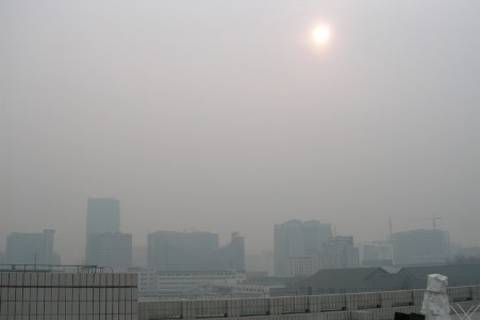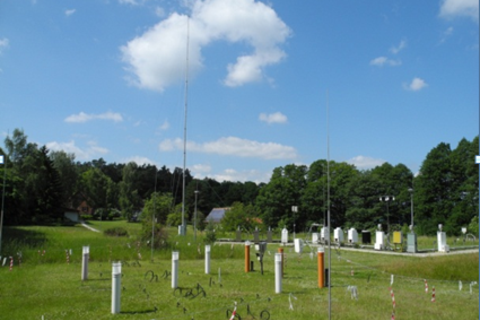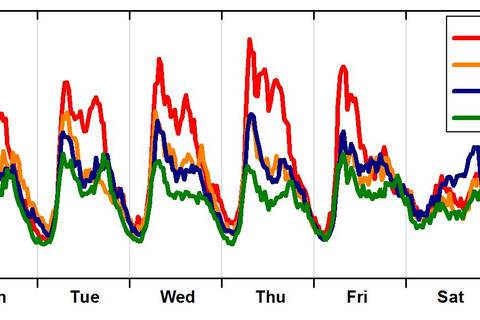Long-term studies for particulate air quality
A focus of our research are:
- Ultrafine aerosol particles (UFPs)
- Soot particles (Black Carbon, BC)
We perform field experiments to characterise the spatial and temporal variability of these particles, and capture the effects of the relevant particle sources (for example, traffic, secondary particle formation). Our studies contribute to
- a more comprehensive characterisation UFPs and Black Carbon exposure
- the assessment of their effects on various ecosystems
On of our major activities is the coordination of the German Ultrafine Aerosol Network (GUAN). In this network, several institutions measure BC mass concentrations and particle number size distributions at 17 locations in Germany.
We are also involved in the regional EU projects UFIREG und Ultraschwarz, which analyse the connection of ultrafine particles and health in 7 cities.
The Leipzig Low Emission Zone (LEZ)
Low Emission Zones (LEZ) are administrative measures to improve air quality in various European cities. Since 2010 we examine the effects of the Low Emission Zone on air quality in Leipzig (LEZ Leipzig). Here, black carbon (BC) and ultrafine particle number concentrations are in the centre of attention. Ambient measurements are performed in cooperation with Saxon State Office for Environment, Agriculture and Geology (Dresden). A key result is that the concentrations of BC decreased in the roadside environment by approximately 30% as a result of the LEZ. This corresponds to roughly 1 µg/m³ BC at roadside.



